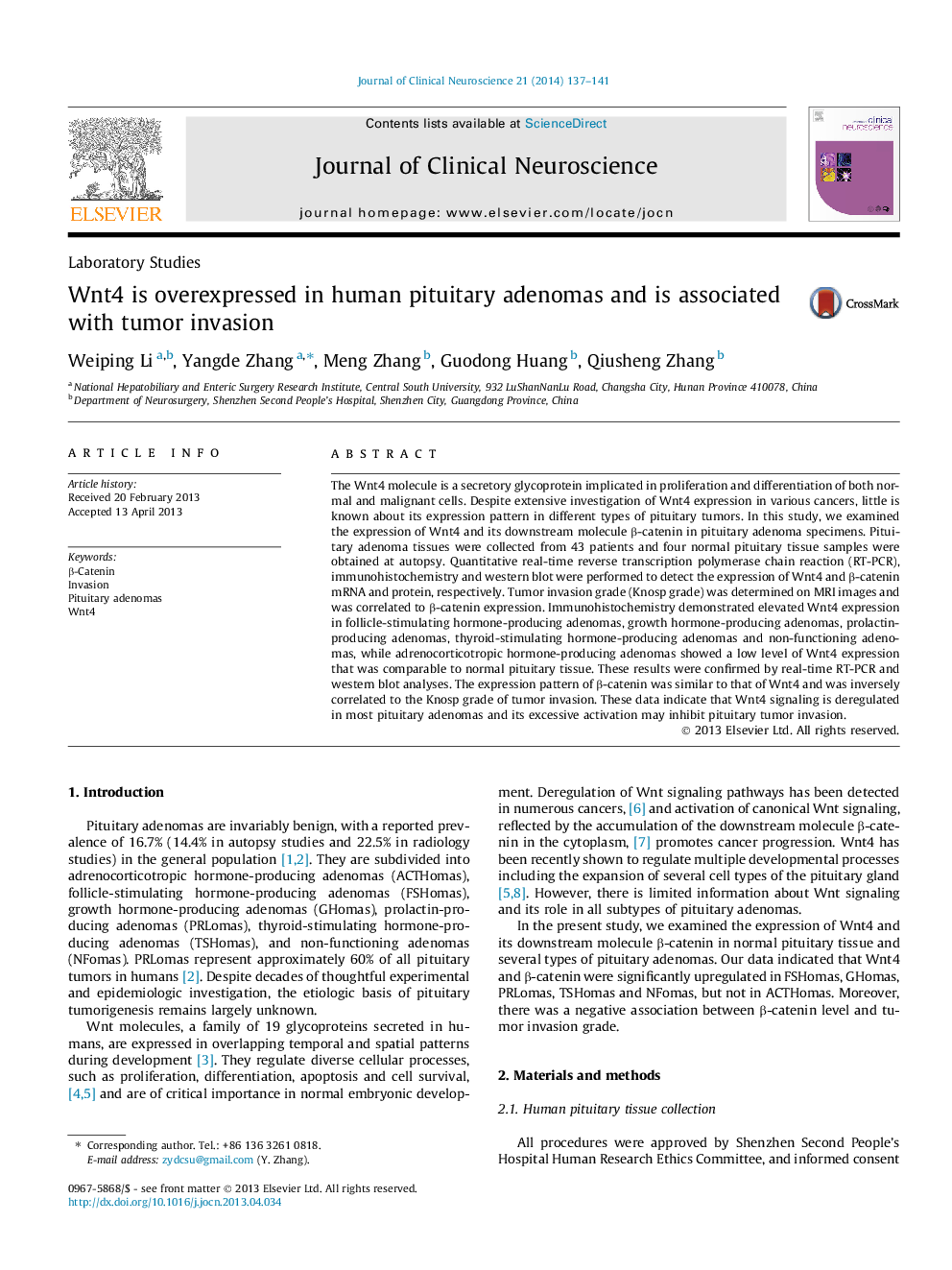| Article ID | Journal | Published Year | Pages | File Type |
|---|---|---|---|---|
| 3059829 | Journal of Clinical Neuroscience | 2014 | 5 Pages |
The Wnt4 molecule is a secretory glycoprotein implicated in proliferation and differentiation of both normal and malignant cells. Despite extensive investigation of Wnt4 expression in various cancers, little is known about its expression pattern in different types of pituitary tumors. In this study, we examined the expression of Wnt4 and its downstream molecule β-catenin in pituitary adenoma specimens. Pituitary adenoma tissues were collected from 43 patients and four normal pituitary tissue samples were obtained at autopsy. Quantitative real-time reverse transcription polymerase chain reaction (RT-PCR), immunohistochemistry and western blot were performed to detect the expression of Wnt4 and β-catenin mRNA and protein, respectively. Tumor invasion grade (Knosp grade) was determined on MRI images and was correlated to β-catenin expression. Immunohistochemistry demonstrated elevated Wnt4 expression in follicle-stimulating hormone-producing adenomas, growth hormone-producing adenomas, prolactin-producing adenomas, thyroid-stimulating hormone-producing adenomas and non-functioning adenomas, while adrenocorticotropic hormone-producing adenomas showed a low level of Wnt4 expression that was comparable to normal pituitary tissue. These results were confirmed by real-time RT-PCR and western blot analyses. The expression pattern of β-catenin was similar to that of Wnt4 and was inversely correlated to the Knosp grade of tumor invasion. These data indicate that Wnt4 signaling is deregulated in most pituitary adenomas and its excessive activation may inhibit pituitary tumor invasion.
